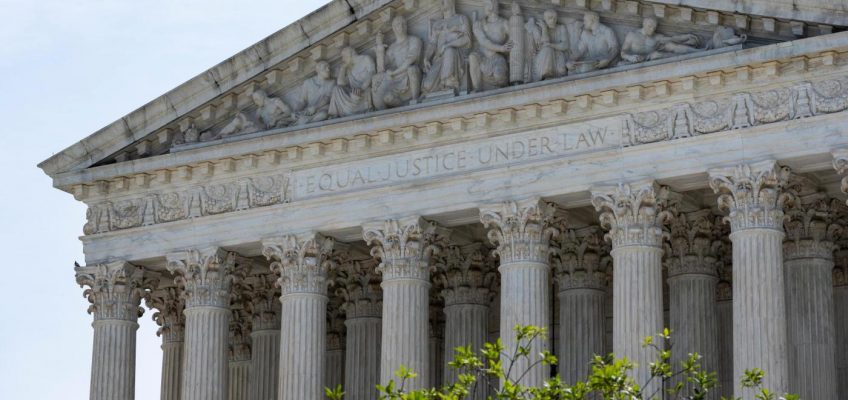Chief Justice John Roberts declared emphatically that “the President is not above the law” in his majority opinion for last week’s sweeping presidential immunity decision. And yet the U.S. Supreme Court’s 6-3 ruling does place the nation’s chief executive above the law and protect the office from criminal prosecution in certain circumstances.
While the decision is not the blanket shield that many say would make a president a king or dictator, it goes considerably too far in excusing the holder of the executive office from accountability.
The ruling creates absolute immunity for a president carrying out the core constitutional duties of the office — what are considered “official acts” — including powers ascribed to a unitary executive in the Constitution, such as granting pardons, hosting foreign ambassadors and engaging in foreign relations.
The decision also creates essentially two lower classes of presidential acts — those considered within the outer perimeter of official responsibilities of the office, from which he has presumptive immunity, and those considered entirely private, for which there is no immunity.
We support the instinct of the court to preserve the critical separation of powers and protect a president from having his constitutional authority marginalized by a barrage of lawsuits — or by the fear of them.
But it goes against American values to offer such complete immunity even when carrying out core constitutional functions.
The result is not terribly surprising considering five of the six conservative justices who joined the majority opinion all worked extensively for previous presidents in the executive branch of government.
But codifying that a president can block an investigation or launch politically motivated investigations without cause or fear of accountability raises the likelihood a president could engage in illegal activity — as former President Donald Trump is accused of in the case that prompted the court’s review.
Former President Gerald Ford’s 1974 pardon of predecessor Richard Nixon, for example, would have been unnecessary under this ruling because Nixon presumably would have been absolutely immune from prosecution for the obstruction of justice allegation that compelled his resignation after he conspired to thwart the investigation of the Watergate break-in.
Presidents can still be prosecuted for some criminal acts, although it will be much more difficult to investigate those acts within the office.
Justice Amy Coney Barrett’s concurrence notes nothing in the Constitution insulates a president from criminal liability for their official acts, although any attempt to charge a president could always face a constitutional challenge.
That is a measured approach and one that should have been adopted in the majority’s opinion. Better yet would have been more unanimity from the court on such an impactful decision.
Legal scholars are divided on how sweeping the protections are, which is reflected in the justices’ individual commentary.
In her dissent from the majority opinion, Justice Sonya Sotomayor took one extreme, arguing the decision enables a president to be emboldened to take a plethora of actions with “evil ends,” such as bribes or assassinations.
Barrett, in her concurrence, sought to calm fears that prosecution — including specific charges against Trump for pressuring state electors in Michigan and elsewhere to overturn election results — would be thrown out.
Notably, the court remanded most of the charges against Trump back to lower courts for evidentiary processing, a clear indication the ruling is not a blanket protection for anything a president might do.
There is a possibility that some of the ambiguities will gain clarity as cases against Trump move through the legal process.
While we agree with Roberts that the ruling should not allow the president to get away with anything, there’s a clear danger that it allows current and future presidents to get away with too much.
— The Detroit News
Related Articles
Toby Proctor: Are you tired of our toxic two-party system?
Stephen Mihm: Cigarette labels were bad. Social media labels would be worse
More states consider voter ID laws amid conflicting research on their impact
Nikki Haley releases delegates, urges them to back Trump at convention
Harris rallies in Las Vegas for Biden. Many Democrats agree, but some want her to face Trump


Leave a Reply